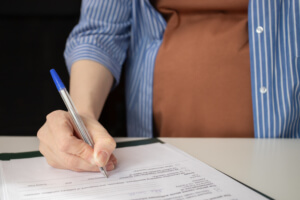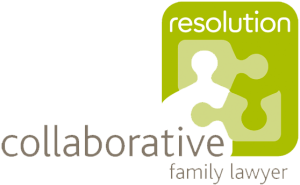Family Law Solicitors
Family Solicitors
Osbornes Law is home to one of the largest and most specialist team of family lawyers in London. Our expert team of lawyers can advise on all family matters including divorce, finances and children matters. Read on to learn more about our lawyers, their experience and how we can help you.
“The family law team at Osbornes is one of the strongest in London; across all areas of work from international cases, financial and children work, Osbornes is a market leader.”
“Osbornes handle a significant amount of complex, high-value divorce work.”
“Osbornes is a top-end firm, a very well-established name. They have high-value matters, deal with complex matters and have a good team.”
Family Law Solicitors in London
Relationship breakdown often brings with it difficult issues involving finances and children. We offer a very personal and tailored service to provide solutions and support.
Our family department, one of the largest in London, acts in High Net Worth divorce cases and specialises in complex disputes and those with an international element; the matrimonial finance team headed by Mark Freedman also offers expertise in pre-nuptial and post-nuptial agreements and in alternative dispute resolution, where Lisa Pepper and David Leadercramer are top ranked lawyers.
We have built great depth and breadth across the spectrum of family law over the past 50 years, with one of the country’s leading international adoption units headed by standout lawyer Naomi Angel; the team also has strength in surrogacy and fertility law. Our children’s law team is known for its high-profile public law cases, private law children, and international child abduction work.
Or as the Legal 500 directory says: “Osbornes offers a unique service of high-quality advice and representation across a wide range of areas of law…this is a very strong team”.
We also come recommended by Chambers UK (High Net Worth section), the Spears HNW Guide and The Times Best Law Firms guide.
Our solicitors are all members of Resolution – the association for family lawyers committed to the constructive resolution of disputes. We understand the anxiety and distress involved and strive to be approachable and creative in working with you.
Our Family Law Services
Divorce and Separation
A divorce can be an emotional, worrying and incredibly difficult time. You need someone who is on your side and can be trusted to act on your behalf, and this is exactly what a good family law solicitor will do. We can help with:
- Financial Settlement Agreements
- Divorce and Property
- Divorce and Pensions
- Divorce and Business Assets
- Divorce and Trusts
Your solicitor will discuss your options with you and listen to your needs. They will give you a realistic picture of where you stand, inform you of your rights and understand those of your ex-partner too. Our team at Osbornes Law will do all they can to make your divorce as simple and stress-free as possible.
Children Law
When a couple has children, their needs are always at the heart of every decision they make. When a relationship breaks down, the impact on the children is a primary cause of concern. Our child law experts have expertise in handling all types of cases involving children, including representing parents and children in difficult disputes. It takes great skill and experience to get the best outcome for families.
At Osbornes Law, we can offer support and advice on the following complex areas:
- Child Arrangement Orders
- Child Maintenance
- Child Protection
- Child Abduction
- Child Relocation
- Child Custody
Every case is handled with sensitivity and discretion where the interests of children are involved. As family lawyers, we offer emotional support and specialist legal advice to help you establish all the necessary arrangements, preferably without going to court.
Adoption Law & Fertility Law
Legal advice and representation from our leading adoption lawyers are available at every stage of the adoption process. As advances are made in fertility technology, the ways we grow families are changing. Issues including assisted reproduction, egg and sperm donation, surrogacy and adoption are alternatives for prospective parents who cannot conceive naturally. However, a biological connection to a child does not always mean a person automatically acquires parental rights by law.
When adopting or using donors/surrogates, there can be complex legal implications when you bring your new family member home. Acquiring quality fertility law advice early is important to help you successfully work through the process.
Prenuptial Agreements
A prenuptial agreement, often simply called a “prenup,” is a legal document crafted by couples before they marry. They are more common when one partner already has more assets than the other. For example, those with a large inheritance, landowners, business owners or couples who are marrying in later life or who may be entering into a second marriage. At Osbornes Law, we understand the importance of securing your future and safeguarding your interests. Our expert family solicitors provide clear, compassionate advice to help you navigate the complexities of prenuptial agreements.
Civil Partnerships
Before legalising same-sex marriage in 2014, homosexual couples could only enter civil partnerships when wishing to register their relationship officially. Today, anyone aged 16 or over who is not already in a civil partnership or married can register a civil partnership. The process has certain requirements, including giving notice at your register office and presenting certain identification documents.
When a civil partnership breaks down, it is important to seek the services of a family law solicitor who understands the specialist legal considerations. At Osbornes Law, we can advise and assist in ensuring a complete, relevant financial disclosure to reach a satisfactory financial settlement. We can also assist you in dealing with arrangements regarding yours. Getting expert legal advice is essential to getting the right outcome.
Cohabitation & Unmarried Couples
Separation after cohabitation can cause unpleasant surprises for both parties as there is no such thing as ‘common law marriage’. The legal rights of couples who live together without marrying or entering a civil partnership are complicated and continually developing and changing. Our team at Osbornes Law contains specialist cohabitation lawyers, and we can offer genuine expertise in this highly complicated area of law.
Mediation
Mediation is all about maintaining communication and working to resolve disputes with the help of an impartial mediator. Mediation is not only quicker and less stressful than going to court but also provides a safe environment where parties can communicate even if they are not in the same room. Additionally, unlike the rigid structure of court proceedings, mediation is adaptable, allowing for a process that can be tailored to the needs of both parties.
Collaborative Law
Osbornes Law help families achieve the best collaborative outcomes possible using alternative dispute resolution. Our team is highly trained in collaborative family law. As part of this process, you should expect to attend collaborative meetings involving you, our lawyers, and the other party, along with their collaborative lawyer.
Parenting
Family Law FAQs
- What happens if you lie in a Family Court?
- My spouse is going bankrupt. Will it affect my divorce?
- Do I need permission to take my child abroad?
- Who can get divorced in England/Wales?
- How do you annul a marriage?
- Can I move with my children after divorce?
Talk to our specialist family lawyers
Whatever your family circumstances, if you need advice, please get in touch. We are here to help. To speak with one of our solicitors:
- Fill in our online enquiry form; or
- Call us on 020 7485 8811
Speak to a Family Solicitor Today
Call us 020 7485 8811
Email us Send us an email and we’ll get back to you
Osbornes offers a high level of client care and manages client expectations realistically.
They have a strong team, are heavyweights in this space and are very well respected in the courts.
Osbornes handle a significant amount of complex, high-value divorce work.
Osbornes have talented fee-earners at all levels.
Osbornes is a top-end firm, a very well-established name. They have high-value matters, deal with complex matters and have a good team.
I have found the team at Osbornes works very well together to diligently produce a quality end result. Client service has been excellent and I feel like I am in safe hands.
Osbornes is a power house of a family firm. They are robust but realistic and client focused.
Osbornes has lawyers with excellent experience.
Lisa Pepper has an excellent mediation practice, acting for a range of individuals and with a great manner with clients.
Lisa Pepper at Osbornes is an excellent lawyer mediator. She is approachable, calm, unflappable and engaging. I would trust her to mediate on any case.
Her non-judgemental approach quickly gains parties' trust, and her impressive legal expertise ensures all aspects are carefully considered.
I frequently recommend Lisa Pepper with no hesitation as she is obviously at the top of her game in terms of the law.
Mark Freedman is incredibly responsive and conscientious with great street-smarts. A fighter who will get the job done.
Lisa Pepper is an experienced, tried, tested and trusted mediator. She gets results and her success rate at achieving a settlement through mediation is unrivalled.
Osbornes is a hugely impressive firm that offers strength and depth to its clients.
Lisa's substantial insight into financial disputes involving high-net-worth individuals is where her skills lie.
Lisa Pepper is an exceptional mediator. Her mediation skills are outstanding and enable her to resolve even the most complex and confrontational cases.
Lisa Pepper is an outstanding mediator with a reputation for resolving even the most complex disputes.
Lisa Pepper is a mediator with the instinct needed to help clients move forward. She has excellent client skills.
Lisa Pepper offers remote mediation options alongside standard face-to-face meetings.
Lisa pepper heads the Mediation team and she is often mediating for high-net-worth individuals in both financial and private children matters.
Exceptional mediator’ Lisa Pepper is at the top of her game.
The family law team at Osbornes is one of the strongest in London.
Osbornes‘ family team is headed up by Mark Freedman, a mediator and fighter who will get the job done on both complex financial matters and international children cases.
A market leader across public law, international cases, financial and children work.
"Osbornes Law have a very broad family practice which does all areas of family law at a high level. They have an excellent practice; they are top quality across the board."
Osbornes have been a sound firm forever. They have phenomenal work and an excellent skill set.
Osbornes have high-end partners doing high-end work. They are very impressive.
They have an excellent practice; they are top quality across the board.
Osbornes have a very broad family practice which does all areas of family law at a high level.
He is very hard-working, diligent and thoughtful in his approach. He is on top of the detail and makes strategic decisions.
He commits himself to getting the best results.
He’s a really tough litigator that you certainly want on your side. He will defend his clients to the hilt.
Mark is an immensely capable lawyer, with vast experience and a well-deserved reputation for getting the very best for his clients.
Lisa Pepper is extremely hard-working and adored by her clients. She is a very empathetic and approachable lawyer.
She’s an extremely supportive and kind lawyer and has an increasing mediation profile too
Andrew secured me the best financial settlement for my claim. He is a credit to Osbornes Solicitors.
"It has a strong and experienced team of solicitors who don’t take bad points, work sensibly to get a settlement and who you can always pick up the phone and speak to. They are good lawyers and know the strengths and weaknesses of their clients’ cases. They don’t posture and always pursue their clients cases appropriately. "
"Mark Freedman is a very capable lawyer, renowned for not being a pushover and pushing his clients’ cases as much as he can, but will always talk sensibly about settlement. He is among the best – tenacious, good judgment and tactically aware."
"Mark Freedman is a dynamic and highly experienced family lawyer who fights extremely hard for his clients and is always in their corner, thus ensuring their loyalty and confidence. In a trial you would always want him on your side."
"Bridget Thompson combines her excellent legal knowledge with a clear, succinct and robust style of advice and advocacy. Her approach clearly inspires a high degree of client confidence in her"
"She has impressed me as someone who fights my corner but also understands the importance of resolving issues without unnecessary escalation. She is calm and reassuring."
"Her mediation practice is exceptional; she is also a great solicitor and has a breadth of skill which is really useful."
"He is really experienced and wise. He has a lovely manner about him and clients feel safe with him."
"Jo Wescott is top notch and widely recognised as a rising star throughout the profession. She brings a winning combination of great judgement, an immense work ethic, and a relaxed and charming way with opponents and clients alike. Someone you want on your side”
"Osbornes is pre-eminent for family law in North London. Mark Freedman is a real rainmaker. He is an excellent lawyer and has a top-notch practice"
Mark Freedman is intelligent and personable and has a good selection of high-net work cases.
"Exceptional value for money. Highly competent and reasonably priced. Mark Freedman: one of the best in the field."
"Client-focused. Ready to fight the clients’ corner, but also ready where possible to steer client from unnecessary dispute. Mark Freedman – very experienced, with good instinct for the eventual result. Clients love him and he thinks ahead and directs the client to the best result for the client."
Mark Freedman is a serious player. A fearless family law litigator, who protects his clients’ interests passionately.
Breadth of knowledge and willingness to go the extra mile is what makes it stand out. Mark Freedman – devoted to his clients
Mark Freedman frequently takes on high-value financial and children proceedings that involve complex tax, trust and accounting issues. Sources praise the "tenacity and common sense" he brings to challenging disputes.
"Mark is very experienced, competent, good with clients and takes a sensible approach to cases. He knows exactly what he's doing."
"An exceptional outfit. They take on difficult cases, fight hard and win."
"They are an outstanding firm to work with. They are consistently impressive in their work."
"The team frequently deals with cross-border estates for high–net-worth individuals."
"Mark Freedman is a real heavyweight litigator who has dealt with some very significant cases."
"Mark Freedman boxes clever, keeps his powder dry and when it comes to the end game he negotiates a really good deal."
"Mark Freedman has a specific focus on high-net-worth divorces and finance cases where there are overseas assets and trusts."
"Lisa Pepper somehow manages to get parties to settle on matters where there isn’t much hope to start out with."
"Well-regarded family practice assisting clients with substantial matrimonial disputes and sensitive children proceedings."
"Mark Freedman draws acclaim for his work in high net worth divorce cases, including those involving company structures, family trusts and overseas assets."
"He never gives up. He fights for you to the end and has boundless energy."
Bridget Thompson heads the family team, where client care is the top priority.
Mark Freedman advises high-net-worth clients and knows his stuff.
Highly regarded for his experience as a litigation and mediation expertise, Mark Freedman is tenacious and determined. Clients really feel that he is fighting their corner.
[The Family Law department] handles significant matrimonial finance cases and complex nuptial agreements. Respected for its expertise in cross-border children law matters.
They have a really good, strong team, with the junior elements punching well above their weight. It doesn't matter who you talk to; they are all switched on."
"Mark Freedman receives a lot of instructions from clients based abroad, often relating to complex divorce proceedings. Sources say: “His main strengths are his enthusiastic passion for the job in hand and his total dedication to his clients.”
News & Insights from our Family Law SolicitorsVIEW ALL
- 11.6.2025
‘Worthless’ Shares Used to Undermine Divorce Claim
‘Worthless’ share transfer found to undermine wife’s financial claim The financial remedies team at Osbornes Law advise and represent...
Read more - 11.6.2025
Property Value Drop Won’t Change Financial Order
Drop in matrimonial home value is not enough to overturn a financial order, says Court The financial remedies team at...
Read more - 21.5.2025
Surrogacy Law for Older Parents
International surrogacy, older parents and future implications for a child At Osbornes Law, the family team specialises in both international...
Read more - 17.4.2025
The Risks of International Surrogacy: A Cautionary Message
The risks of international surrogacy and the importance of getting legal advice At Osbornes Law, the family solicitors are specialists...
Read more - 17.2.2025
Domestic Violence: Restricting Parental Responsibility
Domestic violence, coercive control and restricting parental responsibility Parental responsibility (PR) is an inherent legal right for most birth parents,...
Read more - 4.2.2025
Expensive Purchases in Prenups: Joint or Sole Property?
Prenuptial agreements: are expensive purchases joint or sole property? The experienced family lawyers at Osbornes Law advise wealthy and high...
Read more - 23.1.2025
Contempt of Court: Law Commission’s Reform Proposals
Reforming Contempt of Court: Law Commission’s Proposals The Law Commission had been tasked by the Government to review the...
Read more - 23.1.2025
Post-Adoption Contact With Birth Parent: Not If Adopters...
Post-Adoption Contact With Birth Parent It is not uncommon for a birth parent to seek direct contact with an adopted...
Read more - 23.1.2025
A High Bar For Challenging Adoption Orders
Challenging adoption orders Adoption orders bring considerable implications for all the parties and judges do not make such orders lightly....
Read more - 16.1.2025
The Importance Of An Older Child’s Feelings...
The importance of an older child’s feelings and wishes when making a final order When decisions are made concerning...
Read more - 16.12.2024
Vulnerable Clients: Female Psychologist Appointed
Court Allows Female Expert for Abuse Victim in Family Case Many of our family clients are highly vulnerable, and sensitivity...
Read more - 4.11.2024
Anglo-French Divorce: Jurisdiction Guide
Anglo-French Divorce: which jurisdiction is right for you? It has been a year since we launched our Anglo-French department in...
Read more - 1.10.2024
Borrowing Money for Legal Fees in Divorce
What if I can’t afford a lawyer for my divorce? When navigating a divorce, it is widely understood that...
Read more - 27.9.2024
Navigating Divorce, Child Arrangements, and the Jewish Festivals:...
A Jewish divorce presents unique challenges, especially regarding child arrangements and upcoming festivals. Balancing differing levels of religious observance can...
Read more - 25.9.2024
Who Pays the Debts After Divorce?
Am I liable for my husband’s debts if we are separated? Debt is a significant source of stress for...
Read more - 25.9.2024
What Happens to Savings & Investments in Divorce?
Divorce often raises important questions about the division of assets, particularly savings and investments. Understanding what happens to these financial...
Read more - 20.9.2024
Navigating Property Rights in Divorce: Yacht vs. House
A Yacht, A House, and Terminating Matrimonial Home Rights The family court has ruled in the latest instalment of a...
Read more - 17.9.2024
High Court Returns Abducted Children from UK to...
Children abducted from Austria and smuggled to UK on small boat by father returned to Austria by the High Court...
Read more - 12.9.2024
Landmark Decision: A Surrogate Mother’s Rights Are...
In the world of surrogacy, legal rights and parental responsibilities can be a complicated issue. Non-profit surrogacy is legal in...
Read more - 8.8.2024
Wife’s Award Increased Due to Failure To...
Understanding the Impact of Changed Circumstances on Prenuptial Agreements Prenuptial agreements have become the norm where a husband or wife...
Read more - 5.8.2024
Why Did Lauryn Goodman Take Kyle Walker to...
Introduction to the case After a judge took the unusual step of making his judgement public, we’re starting to...
Read more - 1.8.2024
Standish v Standish: Court of Appeal Decision on...
Court of Appeal reduces wife’s divorce award by £20million Dealing with financial matters on divorce can be complex. And...
Read more - 1.8.2024
Matrimonial vs Non-Matrimonial Assets
Matrimonial vs Non-Matrimonial Assets in Divorce During a divorce, people often make the mistake of assuming that everything they own...
Read more - 1.8.2024
What is a Periodical Payments Order?
Periodical Payments Orders in Divorce Throughout the process of a divorce or when unmarried couples with children split up, numerous...
Read more

































